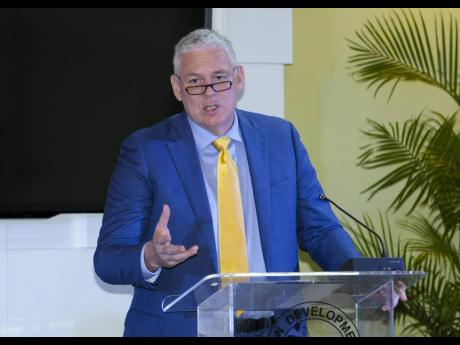Haitians looking to CARICOM for help resolving latest protests
Haiti has been reeling again from another in a series of deadly protests, ignited by calls for President Jovenel Moise to step down amid allegations that he has mishandled the economy and which has led to chronic food and fuel shortages.
Seventeen people have been killed across the country during the nearly one-month long series of protests that have pitted the country’s security forces against angry protesters.
Various reports from the capital, Port-au-Prince, indicate that the clashes have become more intense over recent days.
CARICOM Chairman Allan Chastanet told The Gleaner from Taiwan on Tuesday that a technical team that was being put together for a fact-finding mission to Haiti had been placed on hold as the situation had worsened.
“I know that the situation is getting worse there. I know that we were due to first send a technical team to go there, but unfortunately, with the current crisis, that visit by the technical team has been postponed,” he said.
Julia Abellard, a Haitian national who lives in the capital, also expressed fear that the already strenuous situation could further escalate and is urging neighbouring countries such as Jamaica to step in to try and offer some assistance.
Abellard further explained that people in areas that were most affected by the 2010 earthquake, are the worst hit as a consequence of the ongoing protests as neither aid nor whatever little supplies available can make it through the many roadblocks mounted by angry protesters.
“It is bad here. Some people have no food, and all the gas stations are closed, so motorists can’t move to help their families. People here are so concerned about the clashes and fear it could get worse for us,” she said.
Before the newest round of protests began in early September, Haiti’s economy was already flailing. The country had seen a reduction in funds from PetroCaribe, a Venezuela-subsidised oil initiative, given the drop in oil prices, and international aid for recovery from the devastating 2010 earthquake was dwindling.
The government turned to Haiti’s central bank for money, which sparked a devaluation of the Haitian gourde, which led to a spike in inflation. Before 2015, the exchange rate was 40 gourdes to US$1. Now, it’s nearly 100 gourdes for US$1.
Meanwhile, at least two CARICOM member states have reportedly reintroduced visa requirements for Haitian nationals. And while the restrictions apply to holders of ordinary passports, it does not apply to Haitians who are holders of diplomatic or official passports or those who are holders of US, UK, or Canadian visas.
Dominica announced their reversal days after Hurricane Dorian slammed into parts of The Bahamas, which has a large Haitian population.
The Dominican Ministry of Justice, Immigration and National Security noted that the government had, with immediate effect, reintroduced visa requirements for Haitian nationals entering Dominica.

